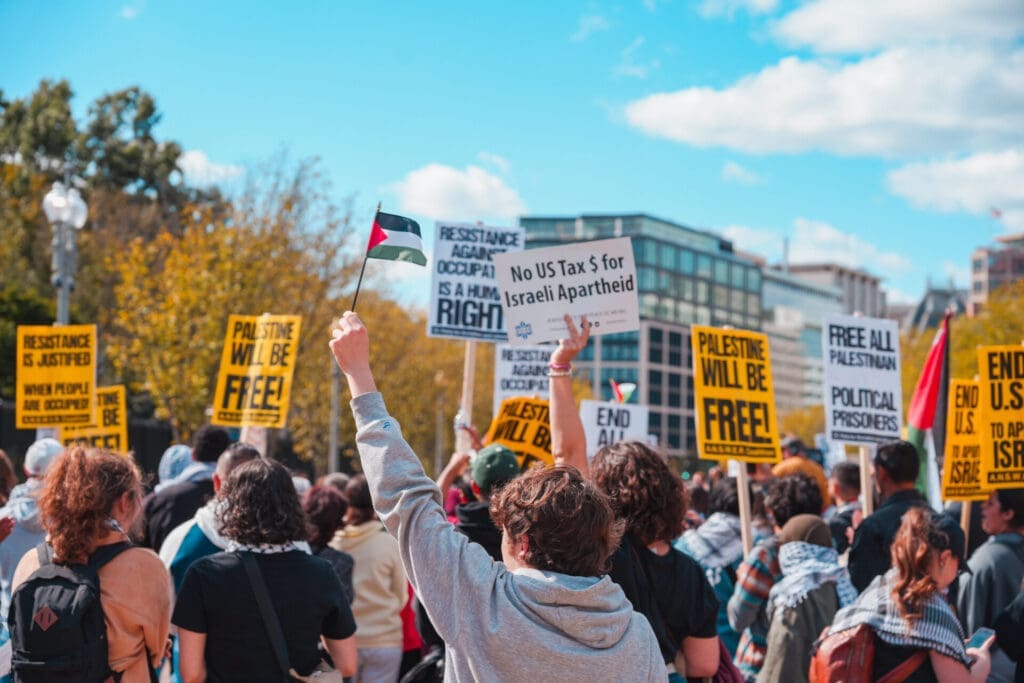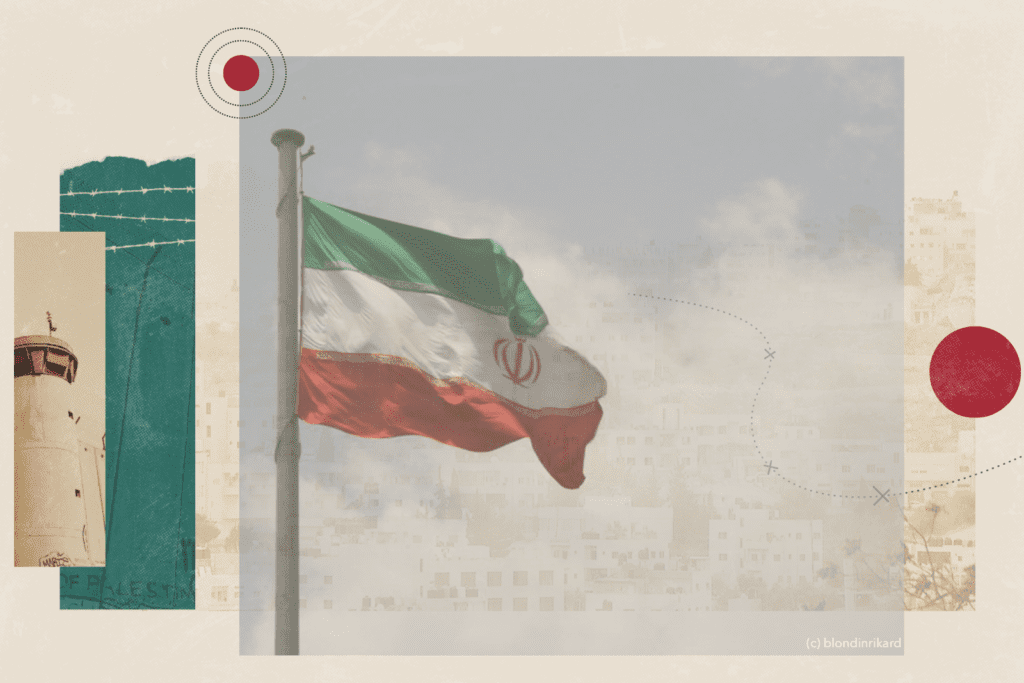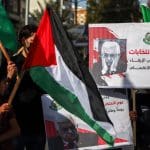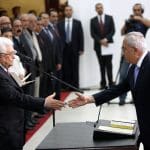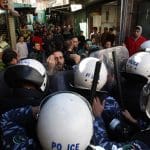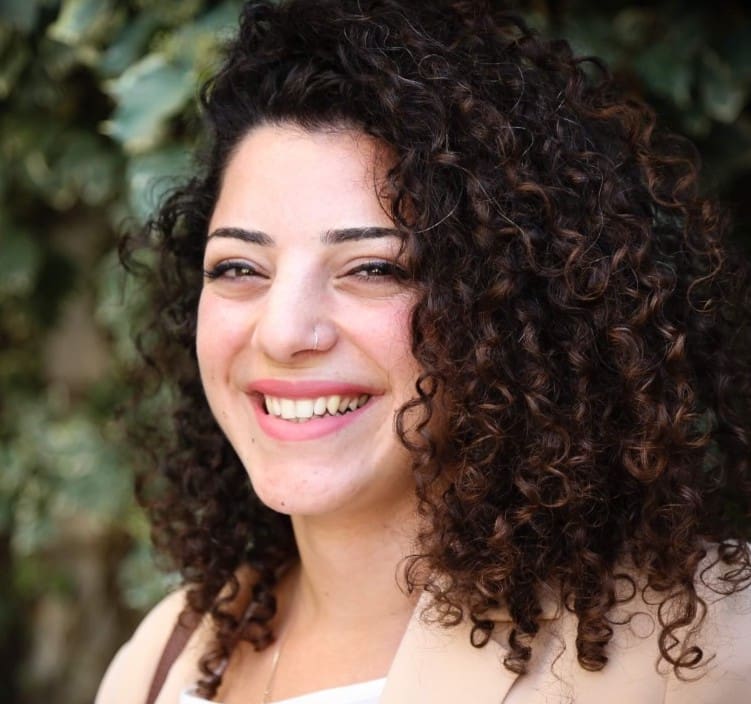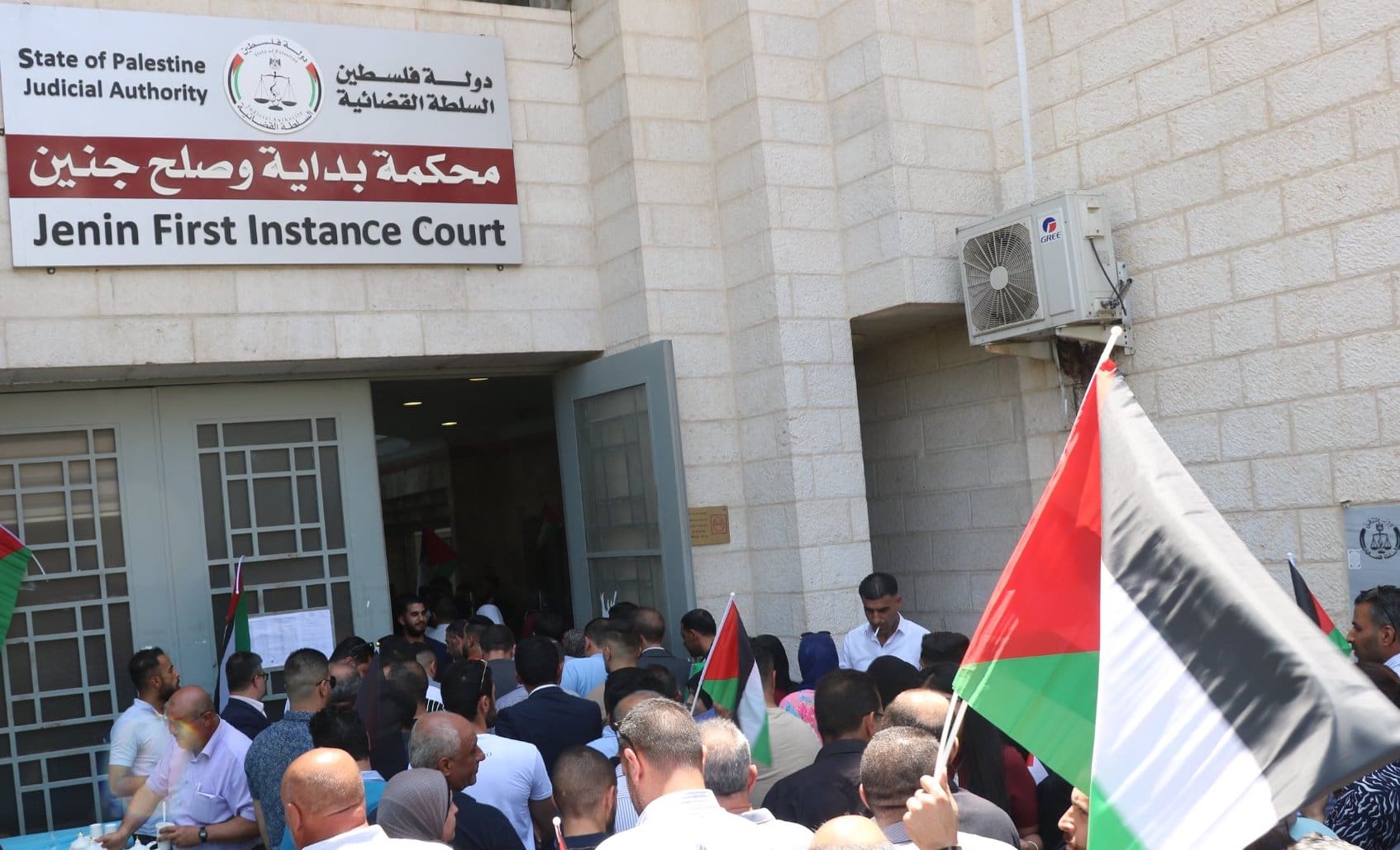
Executive Summary
Palestinian Authority (PA) President Mahmoud Abbas’s control over the Palestinian political and judicial systems is a topic of daily discussion among Palestinians. Following his October 28, 2022 decree no. 17, ordering the establishment of the Supreme Council of Judicial Bodies and Authorities (SCJBA) that he would head, many criticized his increasingly authoritarian rule. But decree no. 17 has many precedents; since 2007, Abbas has issued some 400 decrees entrenching his authority over the judiciary.
In consolidating the domination of the executive authority over the judicial system, Abbas’s decrees contribute to shielding him and the ruling elite from accountability. This policy brief examines how Abbas has managed to tighten his grip over the Palestinian judicial system in the West Bank, and examines the ramifications of these actions on Palestinian civil society. It ends with suggestions for ways to confront Abbas’s authoritarian rule and reform the status quo.
Abbas and the ruling Fatah elite have interfered in the affairs of the judiciary in the West Bank since the start of Palestinian political division in 2006. This was made clear through key developments, including: the appointment of judicial and public prosecution positions based on security clearance and political loyalty; direct interference in the appointment, dismissal, and forced resignation of High Judicial Council (HJC) presidents; tightened control over the Supreme Court and over the budgets of the judiciary; failure to implement judicial rulings; and continued attempts to amend the Judicial Authority Law.
Despite widespread condemnation of these maneuvers from Palestinian civil society over the years, Abbas not only did not retract the decrees, he also issued new problematic ones. In this way, decree no. 17 fits within a trajectory of legal measures that have entrenched his domination over the judiciary. Indeed, the decree stipulates that the head of the HJC, the constitutional court, and the Minister of Justice would be members of the SCJBA. And as head of the SCJBA, Abbas would thus effectively consolidate his grip over every lever of the Palestinian judicial system.
Executive rule over the judiciary ensures Abbas and the political elite’s consolidation of power over many aspects of Palestinian economic, political, and social life. In a system of authoritarian governance, control over the political and judicial systems implies control over the people’s collective and individual rights, including their ability to work, organize, forge a collective identity, and mobilize. This particularly affects unions, syndicates, and various social movements that witness increasing suppression from Abbas’s security forces and the ruling elite.
In the absence of a law regulating the work of unions and syndicates, the judiciary contributes to their repression by invalidating union strikes under the pretext of preserving the public good. To be sure, this serves the interest of the executive authority. Indeed, Al Haq found that “90% of the decisions issued by the Supreme Court of Justice are in favor of the executive authority.”
Fundamentally, that the judiciary works in tandem with the executive authority to pass legal measures suspending strikes, abolishing unions, and oppressing popular movements indicates the entrenched corruption of the Palestinian political and judicial systems. Judges work in the favor of the PA president—a blatant violation of the constitutional principles enshrined in the Basic Law and many international treaties to which the PA is a signatory.
Although Abbas’s authoritarianism continues to be entrenched in many aspects of Palestinian life in the West Bank, this policy brief shows that collective action on the part of unions and Palestinian civil society organizations can be effective in obstructing presidential decrees. To do so in a lasting manner, Palestinians must unify around a shared vision for political and judicial reform, and the means through which to achieve it within the status quo. Without community consensus around the need to dismantle the pillars of authoritarianism and dictatorship that Abbas has established, and around the means of doing so, any replacement to the status quo would not reflect Palestinian popular will and would therefore risk failing.
In the absence of free and fair elections, Palestinians must establish independent reform committees composed of representatives from unions, civil society organizations, and social movements to scrutinize Abbas’s decrees. These reform committees must also investigate cases of judicial repression of unions, syndicates, and social movements in order to challenge them. Part of this would necessitate establishing community-based principles for accountability that would be used to confront Abbas’s domination, including that of his security forces, the Fatah elite, and corrupt judges.
A reformed judiciary must likewise make stipulations forbidding the executive authority from suspending the legislative council and canceling legislative elections. Indeed, without free and democratic elections, the accountability of the judiciary and the executive authority to the law cannot be guaranteed.
Overview
Palestinian Authority (PA) President Mahmoud Abbas’s control over the Palestinian political and judicial systems is a topic of daily discussion among Palestinians. Indeed, following his October 28, 2022 decree no. 17, ordering the establishment of the Supreme Council of Judicial Bodies and Authorities (SCJBA) that he would head, many criticized his increasingly authoritarian rule. But decree no. 17 has many precedents; since 2007, Abbas has issued some 400 decrees entrenching his authority over the judiciary.1
In consolidating the domination of the executive authority over the judicial system, Abbas’s decrees contribute to shielding him and the ruling elite from accountability. To be sure, Abbas’s rule is restricted to the West Bank. Following the 2006 Palestinian political divide between Fatah and Hamas, Abbas lost control over Gaza, and in 2007, the High Judicial Council (HJC) was split between the two occupied territories.
This policy brief thus examines how Abbas has managed to tighten his grip over the Palestinian judicial system in the West Bank, and examines the ramifications of these actions on Palestinian civil society, including the nonprofit sector, unions, and social movements. It ends with suggestions for ways to confront Abbas’s authoritarian rule and reform the status quo.
The Judiciary in Palestinian Law
The autonomy of the judiciary is a fundamental measure of the soundness of a political system, and it is explicitly enshrined within Palestinian law. Articles 97 and 98 of the Palestinian Basic Law stipulate that the judicial authority “shall be independent and shall be exercised by the courts,” and that “judges shall be independent and shall not be subject to any authority other than that of the law.” The articles further stipulate that no other authority may interfere in the judiciary or in judicial affairs, and that the “appointment, transfer, secondment, delegation, promotion and questioning” of judges shall proceed as prescribed in the Judicial Authority Law (JAL). Likewise, Articles 1 and 2 of the JAL no. 1 of 2002 reaffirm the independence of the judiciary and its judges.
Despite these laws, Abbas has managed to strip the judiciary of its independence. In this authoritarian context, judges serve as arms of the executive authority, and are appointed and dismissed at Abbas’s will.
Control over the political and judicial systems implies control over the people’s collective and individual rights, including their ability to work, organize, forge a collective identity, and mobilize. Click To Tweet
Abbas and the ruling Fatah elite have interfered in the affairs of the judiciary in the West Bank since the start of Palestinian political division in 2006. This was made clear through key developments, including: the appointment of judicial and public prosecution positions based on security clearance and political loyalty; direct interference in the appointment, dismissal, and forced resignation of HJC presidents; tightened control over the Supreme Court and over the budgets of the judiciary; failure to implement judicial rulings; and continued attempts to amend the JAL. These and other policies contributed to the entrenchment of the executive authority’s control over the judiciary in the West Bank.
A History of Calculated Maneuvers
It is important to understand Abbas’s calculated legal measures to secure his rule over the judiciary, and the different ways Palestinians have objected to his decrees, in order to strategically confront his increasing authoritarianism.
In 2016, Abbas founded the Supreme Constitutional Court and appointed judges to it overwhelmingly from Fatah. As a result, any decisions made by the court unequivocally served Abbas and the political elite. A case in point is the court’s Interpretive Ruling no. 10 of December 12, 2018, which dissolved the Palestinian Legislative Council (PLC) and called on the president to hold new elections within a period of six months, which he did not do. Palestinian human rights and civil society organizations objected to the 2018 ruling, condemning the call to dissolve the PLC as unconstitutional and a violation of the Basic Law, which stipulates that the PLC may not be dissolved even in a state of emergency. They further argued that the decision constituted a dangerous precedent for dissolving future elected legislative councils.
A year prior, Abbas proposed a draft decree to amend the JAL, sparking widespread opposition. As a result, Abbas issued a decree to form the Justice Sector Development Committee, which opponents also condemned due to allegations of corruption and nepotism. Incidentally, the committee recommended that Abbas advance laws to restore the autonomy of the judiciary; Abbas, however, ignored the committee’s recommendations, and the amended draft decree on the JAL was issued in 2018.
Critics condemned the 2018 decree for empowering the president to appoint and remove the Supreme Court president without the recommendation of the HJC, in contravention of the Basic Law. They also argued that, by giving the executive authority full dominance over the judiciary, the decree would incite conflict between the three main branches of the justice sector—the Judicial Council, the Ministry of Justice, and the Attorney General.
Regardless, Abbas issued three further decrees on December 30, 2020 designed to vest extensive powers in the PA president over the judiciary, including the power to appoint presidents, vice presidents, and judges of the Administrative Court and Supreme Administrative Court, as well as the power to appoint and accept the resignation of the presidents of the Supreme Court and the HJC.
These decrees also equip the PA president and the HJC with several tools to intimidate judges, such as forced early retirement and arbitrary secondment. The proposed amendments further include the formation of an electoral court by the HJC—whose chief is appointed by the PA president—to adjudicate cases pertaining to the Central Elections Commission. The PJA issued a statement condemning the three decrees for infringing on the judiciary, and called on Abbas to retract them. Other bodies also issued statements rejecting them, including the Civil Coalition for the Reform and Protection of the Judiciary, the Independent Commission for Human Rights, and Al Haq.
Abbas not only did not retract the decrees, he also issued new problematic ones. In March 2022, he promulgated decrees amending a number of procedural laws, including the Criminal Procedure Code, the Civil and Commercial Procedure Code, the Law of Evidence, and Enforcement Law. After an arduous struggle, the Palestinian Bar Association succeeded in abolishing these newly issued decrees. According to the association and the Council of Human Rights Organizations, the decrees contained gross violations of fair trial standards, undermined judicial oversight over the legality of arrests, detracted from the right of defense, violated the right to equal access to litigation, and opened the door for judges to arbitrarily manage cases.
Contextualizing Decree No. 17
In this way, Abbas’s October 2022 decree no. 17, calling for the establishment of the SCJBA with him as its head, fits within a trajectory of legal measures that have entrenched his domination over the judiciary and violated the constitution, especially the main principles of the Palestinian Basic Law: the separation of powers and independence of the judiciary. Indeed, the decree stipulates that the head of the HJC, the constitutional court, and the Minister of Justice would be members of the SCJBA. And as head of the SCJBA, Abbas would thus effectively consolidate his grip over every lever of the Palestinian judicial system.
Like earlier decrees, critics of decree no. 17 condemned it for violating the Palestinian declaration of independence and the Basic Law, Article 100 of which stipulates that the PLC consult with the HJC on draft laws related to matters of judicial authority. However, Article 4 of decree no. 17 grants the SCJBA the power to discuss laws related to the judiciary. By granting himself absolute power over the HJC, and subsuming the courts and Ministry of Justice under the new SCJBA, Abbas not only contravenes the Basic Law, but international conventions and treaties that the PA has ratified—particularly the Universal Declaration of Human Rights and the International Covenant on Civil and Political Rights.
That the judiciary works in tandem with the executive authority to suspend strikes, abolish unions, and oppress popular movements indicates the entrenched corruption of the Palestinian political and judicial systems Click To Tweet
Many human rights organizations and Palestinian factions also condemned the decree as an encroachment of the executive authority on the judiciary, demanding its withdrawal, especially given Abbas’s expired mandate and his refusal to hold elections. The Coalition for Accountability and Integrity (AMAN) called for withdrawing the decree in an effort to uphold the Basic Law and the declaration of independence. Secretary of the Palestinian Bar Association, Dawood Darawi, told journalists that the decree threatened democratic governance and laid the groundwork for a dictatorial regime. Nonetheless, decree no. 17 is still in effect, and on March 15, 2023, Abbas issued a decree forming a national committee to reform and develop the judiciary.
Wider Implications of Abbas’s Legal Measures
Executive rule over the judiciary ensures Abbas and the political elite’s consolidation of power over many aspects of Palestinian economic, political, and social life. Indeed, in a system of authoritarian governance, control over the political and judicial systems implies control over the people’s collective and individual rights, including their ability to work, organize, forge a collective identity, and mobilize.
The Nonprofit Sector
In 2022, the Palestinian Council of Ministers issued the Regulation on Nonprofit Companies no. 20, which provides for nearly absolute governmental control over the nonprofit sector. It does so by calling for the establishment of a new oversight mechanism for nonprofit companies (categorized as distinct from civil society organizations, though they sometimes overlap) that duplicates and overrides much of the oversight already carried by the Ministry of National Economy, the Bureau of Financial and Administrative Control, and the Anti-Corruption Commission. Subjecting these organizations to such exorbitant government regulations restricts their freedoms and restrains them financially. Indeed, the 2022 measures allow the government to surveil nonprofits under the pretext of preventing the funding of so-called terrorist organizations. Twenty out of the regulation’s 44 articles were devoted to combating so-called terrorism and money laundering.
The 2022 regulations also allow the government to monitor founders of nonprofits, as well as shareholders and beneficiaries, and to share their information with the registrar of companies. To be sure, the regulations vest legislative and judicial powers in the registrar of companies, including the authority to impose sanctions and penalties, and to act in the capacity of judicial police. Importantly, the regulations do not make stipulations for submitting grievances or appeals against the registrar’s decisions.
The 2022 regulations integrate the stipulations of decree no. 7 of 2021, which amended decree no. 1 of 2000 on Charitable Associations and Civil Society Organizations, restricting the right of association. The 2000 decree was suspended in response to pressures from Palestinian civil society organizations. Likewise, the 2022 regulations were not approved following objections from civil society organizations for their violation of the Basic Law and international agreements. The 2022 regulations are thus the latest crackdown measures on nonprofit companies and civil society organizations, and the government’s attempts to co-opt and destroy them under the pretext of combating terrorism and money laundering.
Importantly, civil society organizations and nonprofits are critical in a society under authoritarian leadership. Through them, Palestinians are able to engage in the political system and mobilize for their rights. Abbas’s attempts to control civil society organizations and nonprofits thus serve to suppress opposition, leading to entrenched authoritarianism over every aspect of Palestinians’ daily lives.
Unions and Social Movements
Abbas works in tandem with the political elite in the West Bank to restrict Palestinians’ civil freedoms. Indeed, before he could pass so many presidential decrees entrenching his authority, he needed to secure the support of the political elite by suppressing popular resistance. He managed to do so using Article 43 of the Palestinian Basic Law, which grants the president “the right, in cases of necessity that cannot be delayed, and when the Legislative Council is not in session, to issue decrees that have the power of law.”
Among many other instances of Abbas’s security services oppressing protestors and activists, Abbas shut down several movements, including the 2016 Palestinian teachers’ movement, the 2018 “Lift the Sanctions” movement, and the popular movement that emerged in response to the assassination of activist Nizar Banat in 2021. Moreover, Abbas increased his suppression of Palestinian digital rights. In 2018, he issued decree no. 10 amending the cybercrime law, granting government authorities the power to block websites and censor social media users.
In the absence of elections, Palestinians must establish independent reform committees composed of representatives from unions, civil society organizations, and social movements to scrutinize Abbas’s decrees Click To Tweet
But Abbas’s repression does not stop there. Both he and his political allies have an extensive history of targeting and suppressing union organizing. In 2015, the Supreme Court issued a decree designating the Public Servants Union as illegal, which resulted in its dismantlement. In 2021, a number of decrees were issued—but later retracted after many objections—including decree no. 7 restricting the work of civil society and charitable organizations; decree no. 9 postponing the elections of trade unions, syndicates, and grassroot organizations; and a 2022 decree to dissolve the elected West Bank Palestinian Doctors Association headed by Shawky Sabha—a decree that was rejected by the elected association.
In the absence of a law regulating the work of unions and syndicates, the judiciary contributes to their repression by invalidating union strikes under the pretext of preserving the public good. To be sure, this serves the interest of the executive authority. Indeed, Al Haq found that “90% of the decisions issued by the Supreme Court of Justice are in favor of the executive authority.” For example, the court issued a decision on December 3, 2017, to end the strike organized by the Federation of Unions of Palestinian University Professors and Employees, citing that the strikers failed to inform the ministry of the strike, and thus did not follow legal procedure. The court concluded that the strike was detrimental to public interest. Likewise, it suspended the Palestinian Bar Association’s 2018 strike in protest of the creation of the High Criminal Court.
Rather than speak of the root causes of union strikes and other forms of protest, government officials highlight the consequences of these movements on various sectors, such as the impact of the ongoing teachers’ movement and recurring university professor and employee strikes on student education. Moreover, the government issued decree no. 41 of 2020 allowing lawyers to file urgent petitions before the administrative court in the absence of defendants. This was the case during the October 2022 strike of Birzeit University professors and employees, when decree no. 41 was used to initiate legal proceedings to suspend the strike.
Fundamentally, that the judiciary works in tandem with the executive authority to pass legal measures suspending strikes, abolishing unions, and oppressing popular movements indicates the entrenched corruption of the Palestinian political and judicial systems. Indeed, judges work in the favor of the PA president—a blatant violation of the constitutional principles enshrined in the Basic Law and many international treaties.
Recommendations
In light of the judiciary’s role in repressing unions and social movements, the dormancy of the PLC, and replacement of legislative processes with presidential decrees, the power of Abbas and the political elite must be checked. And although Abbas’s authoritarianism continues to be entrenched in many aspects of Palestinian life in the West Bank, this policy brief has shown that collective action on the part of unions and Palestinian civil society organizations can be effective in obstructing presidential decrees.
To do so in a lasting manner, however, Palestinians must unify around a shared vision for political and judicial reform, and the means through which to achieve it within the status quo. This would necessitate raising public awareness around the effects of the executive authority’s rule over the judiciary, and the importance of confronting it. Without community consensus around the need to dismantle the pillars of authoritarianism and dictatorship that Abbas has established, and around the means of doing so, any replacement to the status quo would not reflect Palestinian popular will and would therefore risk failing.
In the absence of free and fair elections, Palestinians must establish independent reform committees composed of representatives from unions, civil society organizations, and social movements to scrutinize Abbas’s decrees, especially those promulgated under Article 43 of the Basic Law. This would also contribute to restoring freedom to civil society organizations and nonprofit companies.
These reform committees must also investigate cases of judicial repression of unions, syndicates, and social movements in order to challenge them. Part of this would necessitate establishing community-based principles for accountability that would be used to confront Abbas’s domination, including that of his security forces, the Fatah elite, and corrupt judges. It would also require consensus around a comprehensive vision for reforming the judiciary so that it, too, is held accountable for upholding the Basic Law, international treaties, and human rights norms.
A reformed judiciary must likewise make stipulations forbidding the executive authority from suspending the legislative council and canceling legislative elections. Indeed, without free and democratic elections, the accountability of the judiciary and the executive authority to the law cannot be guaranteed. This would also ensure that no political party monopolizes representation, that oversight over political authorities is implemented across the board, and that constitutional and international laws are respected.
- To read this piece in French, please click here. Al-Shabaka is grateful for the efforts by human rights advocates to translate its pieces, but is not responsible for any change in meaning.


